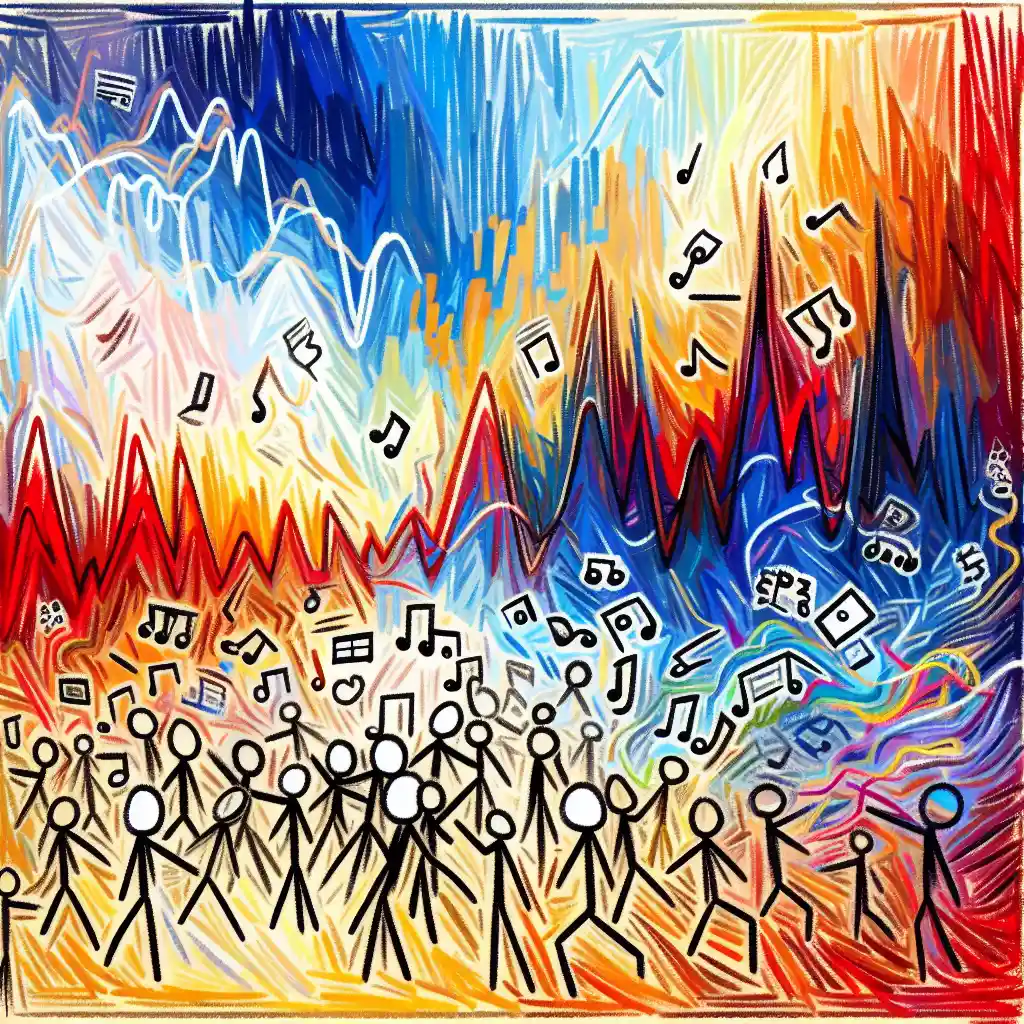Has the Billboard Hot 100 caught the Holy Ghost?

Explain Like I'm 5
Imagine you have a big chart on your bedroom wall where you stick a star sticker next to your favorite songs. Now, imagine lots of people doing this too, but instead of a bedroom wall, it’s a big list called the Billboard Hot 100 that everyone can see. Recently, this list has a lot of songs that talk about God and Jesus, kind of like the songs you might hear in church. It’s like suddenly, everyone decided to put star stickers next to songs that make them think about big, important stuff like love and being good to others. That’s what it means when they say the Billboard Hot 100 has "caught the Holy Ghost" — it’s full of songs that have a special churchy feeling!
Explain Like I'm 10
The Billboard Hot 100 is like a scoreboard that shows which music tracks are the most popular in the U.S. every week. Think of it as the music Olympics where songs compete for the top spot. Recently, a lot of these popular songs are Christian contemporary music, which means they’re tunes that talk about Christian beliefs and stories, kind of like what you’d hear during a church service.
Why is this happening now? Well, sometimes people look for messages in music that make them feel better or help them understand big life questions, especially when times are tough or confusing. These songs are catching on because they give listeners a sense of hope or comfort. It’s like when you have a favorite comfort movie or book you turn to when you need a cheer-up. This trend is also a bit surprising because usually, the top songs are about other things like love, parties, or personal stories. So seeing so many spiritual songs in the mix shows that a lot of people are enjoying this kind of music right now.
Explain Like I'm 15
The Billboard Hot 100 is a critical barometer for the music industry, tracking the most downloaded, streamed, and played songs in the U.S. each week. Lately, the chart has seen a significant rise in Christian contemporary music (CCM) — these are songs that fuse modern music styles with themes of Christian faith and spirituality.
Historically, CCM stayed within its niche market, but its surge into mainstream charts suggests a broader cultural shift. This could be reflective of a societal move towards seeking comfort in spirituality or religion during challenging times, such as economic uncertainties or social unrest. It’s not just about the music; it’s about what the music represents in the broader context of societal values and emotional needs.
Moreover, the economics behind the music industry might also be fueling this trend. As streaming becomes more prevalent, the barriers for music of any niche to reach a global audience lower, allowing genres like CCM to flourish. The industry dynamics are shifting, and what we’re seeing on the charts is a direct reflection of this evolution.
What does this mean moving forward? This trend could influence record labels and artists to produce more faith-based music, anticipating a lucrative market. It also might spark discussions about the role of music in cultural and spiritual life, and how these elements interact in the digital age. As for the long-term impact, it will be interesting to see if this is a temporary surge or a lasting change in the musical landscape.
Want to read the original story?
View Original Source